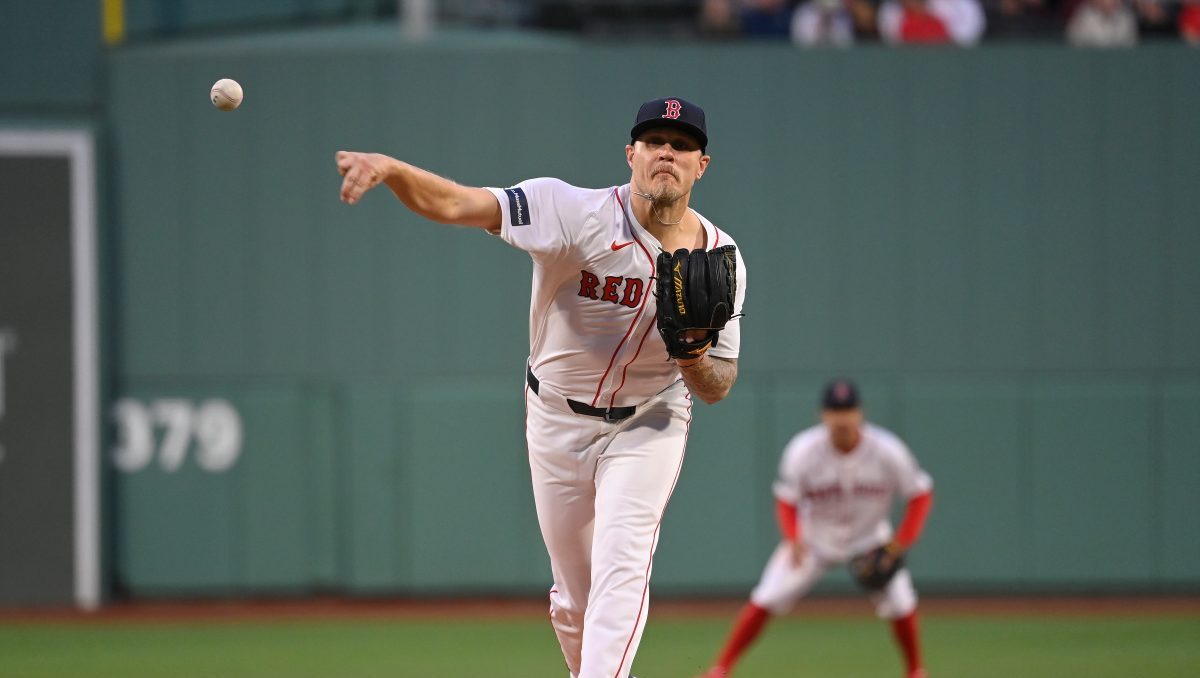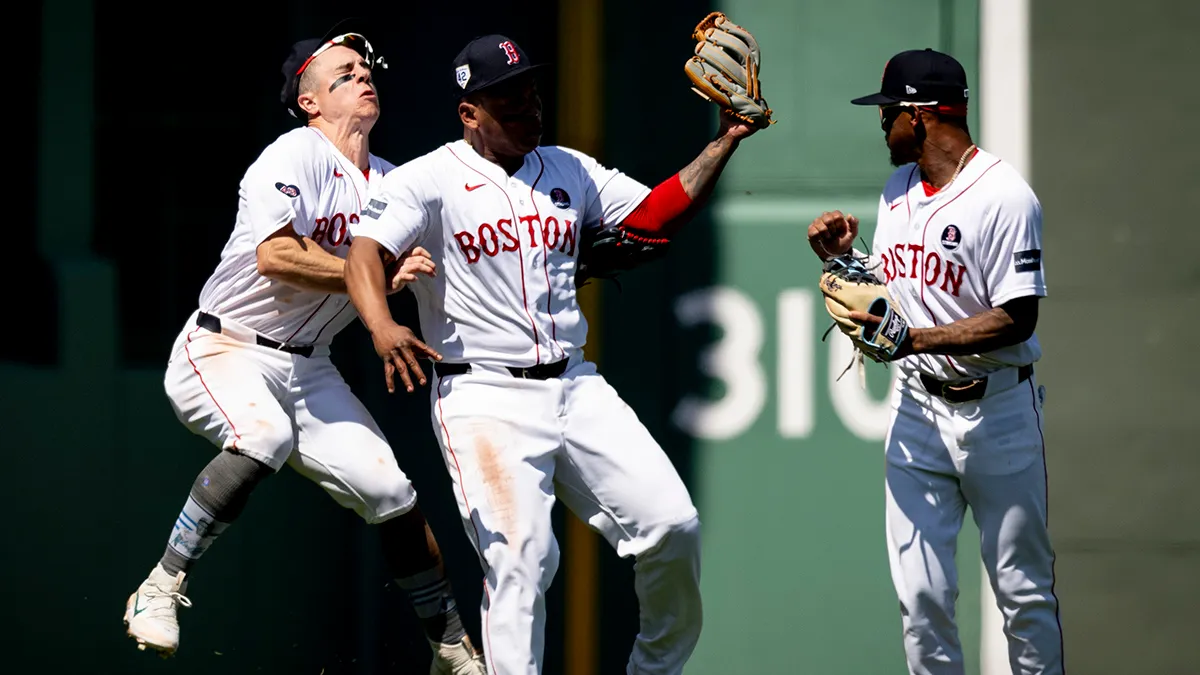February arrives this weekend, spring training begins in two weeks, and Mookie Betts remains on the Red Sox roster.
This leads to an obvious question: with rumors swirling about interest from the Padres and Dodgers, is there still time for the Red Sox to swing a trade?
According to chief baseball officer Chaim Bloom, the answer is yes.
"Sometimes the action happens early, some years it happens late," Bloom said recently. "Obviously, closer to spring training there are practical hurdles. You want to feel like you have time for the impact of anything to settle. But I've been around deals that happened very late and there's certainly still time. But I don't say that to indicate anything one way or the other, just to answer your question."
LIVE stream the Celtics all season and get the latest news and analysis on all of your teams from NBC Sports Boston by downloading the My Teams App.
It turns out that history is with him, though blockbuster trades this late in the offseason certainly aren't common.
Examine 20 years' worth of transactions and you'll find a handful of impact deals that occurred between Jan. 27 and Opening Day. Most don't involve the kind of money — $27 million — the Red Sox are trying to move with Betts, but it's worth noting how tricky they are to consummate this close to the start of the season.
Since 2000, five deals generally fit Boston's current parameters: trading an All-Star caliber player this close to the season, when most clubs have settled their budgets and rosters. (For the sake of this exercise, we're not including the monster free agent deals Manny Machado and Bryce Harper signed last February/March with the Padres and Phillies, respectively).
Two of the five deals don't realistically compare to Betts, though. On this date in 2006, the Red Sox acquired center fielder Coco Crisp from the Indians for a package that included top prospect Andy Marte and catcher Kelly Shoppach. Crisp was good, but not great, and the Red Sox acquired him while he still had arbitration eligibility remaining.
Boston Red Sox
Likewise, the everything-must-go Marlins shipped All-Star catcher J.T. Realmuto to the Phillies last Feb. 7 for a pair of prospects, a fringe big leaguer, and international bonus money. Realmuto had two years of team control remaining when the Phillies acquired him.
That leaves three deals involving players the caliber of Betts — trades of former MVPs Ken Griffey Jr. and Alex Rodriguez, as well as Cy Young Award winner Johan Santana.
Let's break down each to try gain some insight into what the Red Sox face.
Feb. 10, 2000: Mariners trade Ken Griffey Jr. to Reds
When owner John Henry told reporters in September that the team wanted to drop below the $208 million luxury tax threshold, he effectively put his next GM in a box, but it's nothing compared to the one Seattle's Pat Gillick found himself in during the winter of 1999-2000.
He entered that offseason knowing he needed to trade the former MVP and all-around best player in baseball before his contract expired in a year, but Griffey's 10-5 rights meant he could dictate his destination, and he provided the M's with only four options: the Reds, Mets, Astros, and Braves.
Gillick negotiated all winter before finally striking the February deal that sent Griffey to his hometown Reds for a package that included future Gold Glover Mike Cameron and right-hander Brett Tomko.
Cameron ended up making as many All-Star games (1) as Griffey over the next four years, winning two Gold Gloves to Junior's zero. He also played an integral role in the 116-win behemoth of 2001, while Griffey never made the postseason over his nine years in Cincinnati.
Here's where the Betts comparison falters, though. Griffey arrived in Cincinnati at age 30, while Betts only just turned 27. Betts should be that much further from his decline, buying his next team some more leeway if it signs him to a long-term deal.
Feb. 16, 2004: Rangers trade Alex Rodriguez to Yankees
Red Sox fans need no reminder of how this deal went down.
Boston spent half of that offseason trying to acquire the defending MVP, striking a complicated deal involving Manny Ramirez, Nomar Garciaparra, Magglio Ordonez, and others. It would've pulled it off, too, except the MLBPA balked at Rodriguez reducing his salary.
So in swooped the Yankees at the 11th hour by dangling slugging infielder Alfonso Soriano, completing the trade that put Rodriguez in pinstripes and made him villain No. 1 in Boston for the next decade.
While Rodriguez imported more than his share of controversy to the Yankees clubhouse before retiring in disgrace, he also delivered, winning a pair of MVP awards and the only World Series title of his career in 2009.
If there's a tie to Betts, it's the idea that the Red Sox could move down the road with one club — let's say the Padres — before a division rival with massive resources springs into action, in this case the Dodgers.
Feb. 2, 2008: Twins trade Johan Santana to Mets
Sometimes, there are no right answers.
Take the 2008 trade that sent the two-time Cy Young Award winner to New York before he played out the final year and $13.25 million on his contract.
Minnesota's rookie GM, Bill Smith, knew he couldn't afford Santana long-term (sound familiar?), so he jettisoned him for a pile of prospects, virtually all of whom missed. The best player in the deal was outfielder Carlos Gomez, not that the Twins benefited; he didn't blossom into an All-Star and Gold Glover until 2013 with the Brewers.
Meanwhile, the Mets didn't receive an adequate return on their six-year, $137.5 million investment, either. Santana delivered three good-to-great seasons before injuries effectively ended his career in 2010.
The real what-if in this scenario is how different the deal would look if the Twins had traded Santana to a Red Sox team that boasted Jacoby Ellsbury, Jon Lester, Clay Buchholz, Justin Masterson, and Jed Lowrie in a loaded farm system.
It's a cautionary tale for Bloom as he evaluates competing prospect packages from the Padres and Dodgers, because making the right deal for the wrong players accomplishes nothing.





